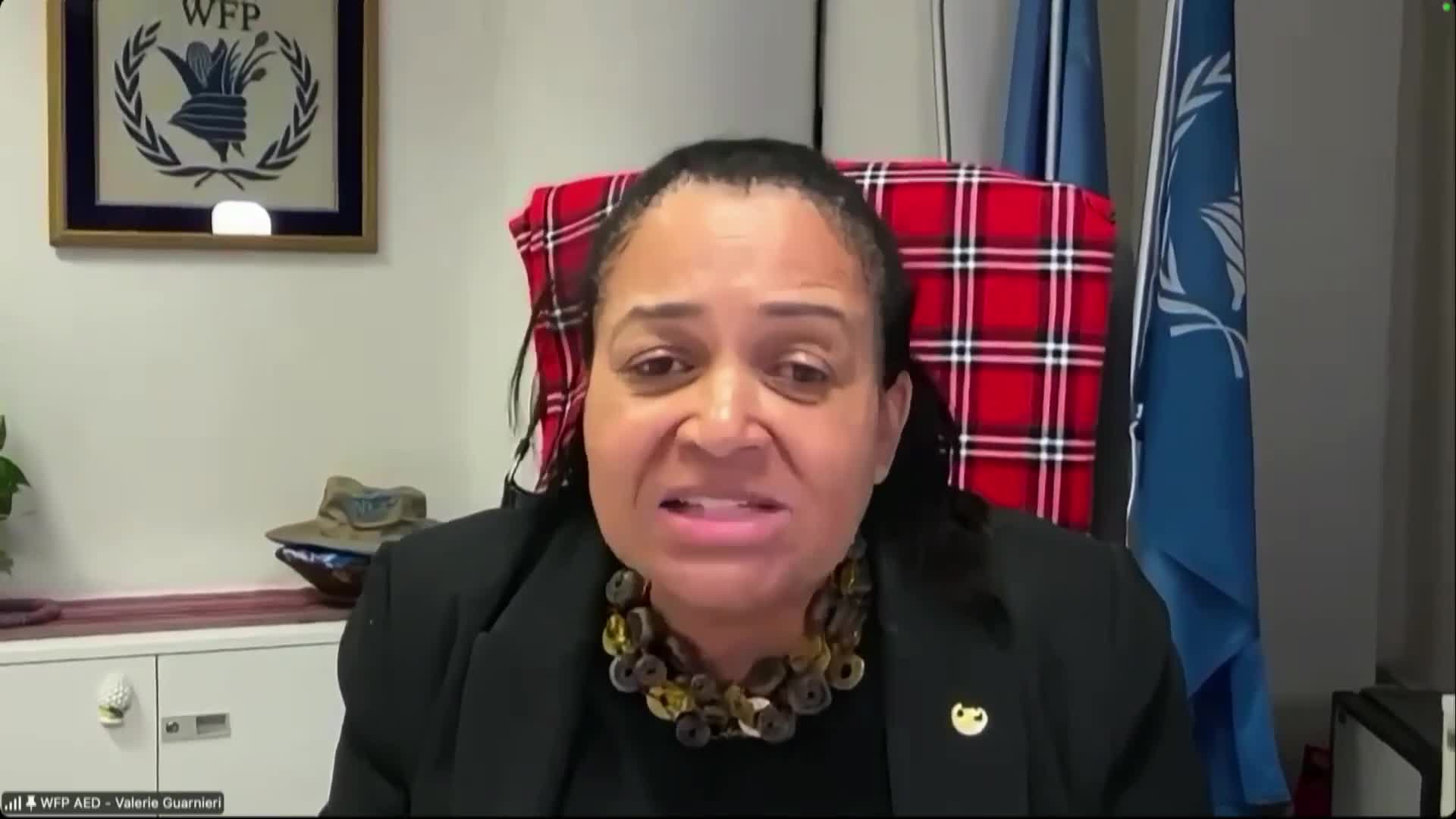WFP: access constraints and resource gaps limit reach despite scaling up to 4 million monthly
Get AI-powered insights, summaries, and transcripts
Subscribe
Summary
WFP said it has reached more than 4 million people monthly but lacks the funding to scale further; convoys into besieged El Fashar remain blocked without guarantees of safe passage, and an interagency convoy will attempt to reach displaced populations outside the besieged zone.
The World Food Programme has substantially increased assistance in Sudan but warned that funding shortfalls and access constraints are preventing a broader scale-up, while convoys into besieged areas remain unauthorized.
"WFP has reached over 4,000,000 people each month with urgent food and nutrition assistance, double last year's reach," WFP Assistant Executive Director Valerie Guarneri said, while noting the organization now has operational capacity to reach 4–5 million people monthly but lacks the resources to sustain or expand that level.
Guarneri said Darfur remains a key area of concern and that coverage in some famine-declared or famine-risk locations had risen to about 85% of the population assessed there. She described the risks to staff operating on the front lines and said convoys to Al Fashar, Kadugli and Dilling continue to face severe constraints because safe passage has not been authorized.
Asked about El Fashar and Tawela, Guarneri said a sizable convoy to El Fashar was prepared but that authorization for safe transit had not been granted, leaving the agency "not feeling very optimistic" the convoy would get in. She added that commercial supplies are limited and that a majority of people have left El Fashar; "There are only 2 to 300,000 people remaining in El Fashar," she said.
UNICEF's Ted Chaiban said an interagency convoy is scheduled to depart "tomorrow" with the objective of looping around Fashar to reach people who fled to surrounding locations such as Kutum and Tawela, and to reach concentrations of displaced people outside the besieged city. Chaiban described arriving populations with "literally the clothes on their backs" and said it was urgent to reach people gathered in multiple locations.
WFP and partners emphasized that, beyond physical access, a major influx of predictable, flexible funding is needed to maintain current coverage and expand assistance to people outside immediate famine-risk areas. Officials said humanitarian efforts should be complemented by development action where security permits to reduce long-term needs and build local resilience.
